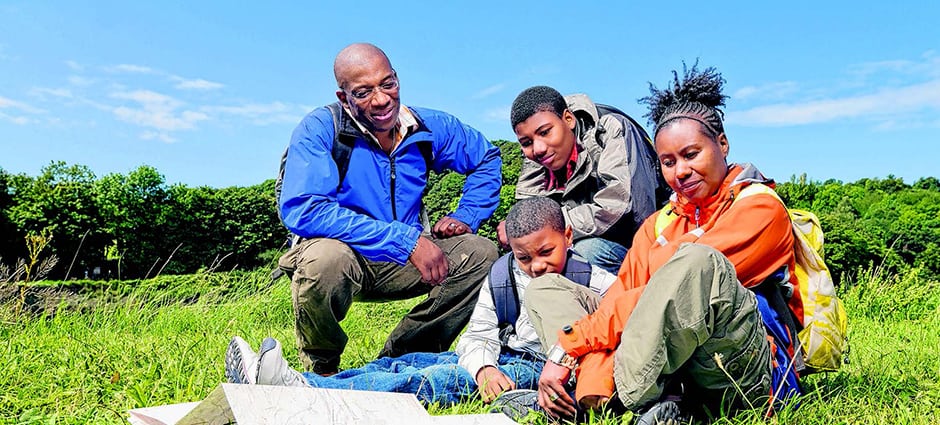
[This piece was written by Nathan Graber, MD, MPH, FAAP, with St. Peter’s Pediatrics in Clifton Park, a member of St. Peter’s Health Partners Medical Associates.]
Camping is a fantastic way to have fun and make memories that will last a lifetime. Connecting your kids to nature, playing outdoors and family time are beneficial for health, development and emotional well-being. Keep safety in mind as you head out, as injuries and illness can be more likely to happen due to the excitement of the trip, unfamiliar surroundings, and the change in everyday activities.
When you arrive at the campsite, have everyone help set up the camp. Take a walk around the site and surrounding area with your kids, while you still have daylight to see things clearly, to familiarize them with the location of:
- The fire pit
- Tent and tarp guy lines
- Uneven terrain
- Lakes, ponds and rivers
- The bathrooms
As you look around, identify trip and fall hazards, poisonous plants like poison ivy, and set limits for how far they can wander without supervision.
Build small campfires that everyone can enjoy. Kids are naturally curious about fire, so review fire safety tips with them. They can roast marshmallows and add wood to the fire but should otherwise keep a safe distance of at least three feet. Once something is added to the fire, it has to stay there. They should be reminded that if their clothing catches on fire they must “stop, drop and roll.” And, of course, always have a bucket of water or sand at hand in case of an emergency.
Remember to utilize the “buddy system” when leaving the campsite, especially when deciding to go for a hike or swimming. Children need to be supervised in or around the water at all times. Always have at least one other person with you if you’re going off to explore, or even to use the bathroom. It is easy to get disoriented, especially once the sun goes down, and it can be scary for young and old campers alike if they get lost. Teach your kids to stay in one spot if they get lost, someone will come and find them.
Finally, don’t forget a first aid kit, any prescription medications, sunblock and insect repellent. Repellants that contain DEET are considered to be the most effective for biting insects, just be careful to keep them away from kids’ hands and mouths. And before you bed down for the night, make sure everyone does a full-body tick check.
So get out there and make some summer camping memories!
St. Peter’s Pediatrics – Clifton Park, 1 Tallow Wood Drive on the St. Peter’s Medical Campus, offers a complete range of services for children. New patients are welcome, with services including well-child routine care, sick-child exams, school and camp physicals, sports physicals, immunizations, and access to other hospital services and referrals to specialists. Call 518-688-0295 for an appointment.





